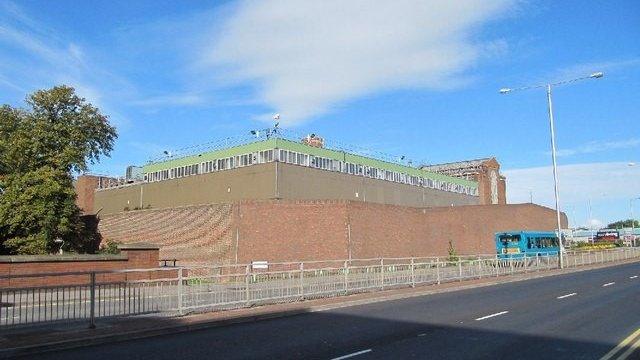Campaigners fight to save Oscar Wilde prison in Reading
- Published
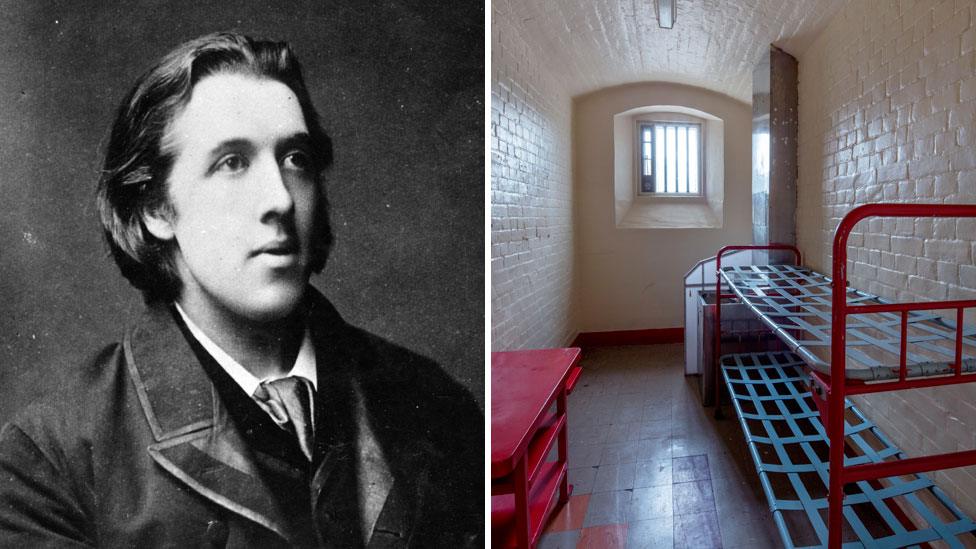
The prison was immortalised by Oscar Wilde's poem The Ballad of Reading Gaol, written during his two-year sentence for gross indecency
A prison which once housed playwright Oscar Wilde "should not be sold and converted into flats".
The Ministry of Justice (MoJ), which owns the Grade II listed jail, announced last month it would sell the site.
It said it was working with the local authority to look at alternative uses for the site, including housing.
East Reading MP Matt Rodda said the "unique site" should be used to promote Reading's arts and history.
The MoJ said its aim is to "get value for money for taxpayers" from the sale of the site which closed in 2013.
Wilde, who spent two years there for gross indecency between 1895 and 1897, wrote about his experience in his poem, The Ballad of Reading Gaol.
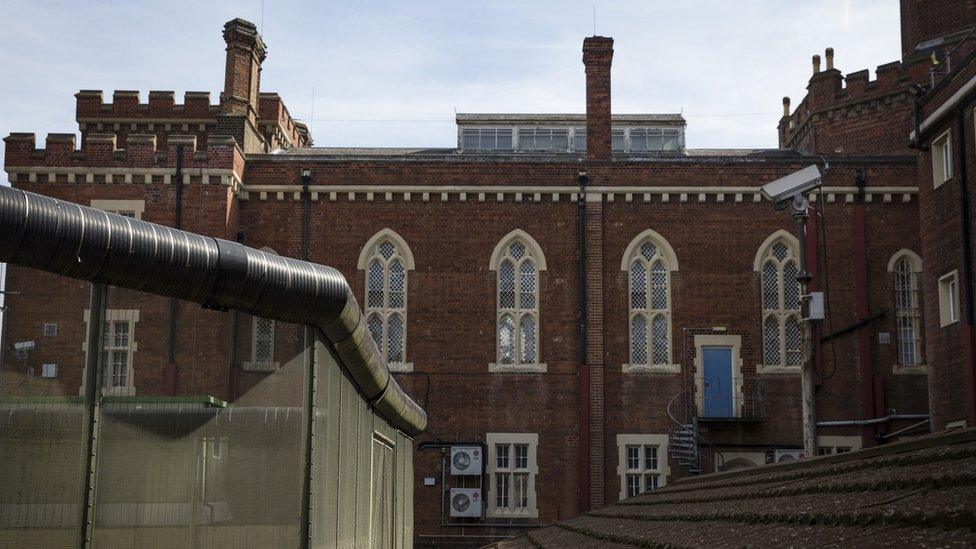
The empty prison costs the Ministry of Justice more than £250,000 a year to maintain
Campaigners say the jail should be preserved as a piece of the country's "precious heritage" and turned into a theatre and arts centre.
"I am concerned that Reading's historic gaol is at risk of being redeveloped as luxury flats, after the government announced it would sell the site to the highest bidder," said Mr Rodda.
"It is a vital part of our heritage and it needs to be protected."
In 2018, Theatre Arts Reading set out a vision for the prison to include two theatres, creative start-up spaces, an Oscar Wilde museum and an art gallery.
It conducted a feasibility study which is currently being looked at by Arts Council England, which funded the study.
Reading Borough Council has endorsed their "powerful" vision for the "key" heritage site.
It said the prison is the "missing piece" in its regeneration plans, which include the recent reopening of the historic Reading Abbey Quarter next to the jail.
The MoJ said in a statement: "Any future use of the site will be guided by the local planning authority and will be in accordance with their requirements.
"Proceeds will be invested back into the prison estate to support rehabilitation."
- Published6 July 2018

- Published2 October 2017
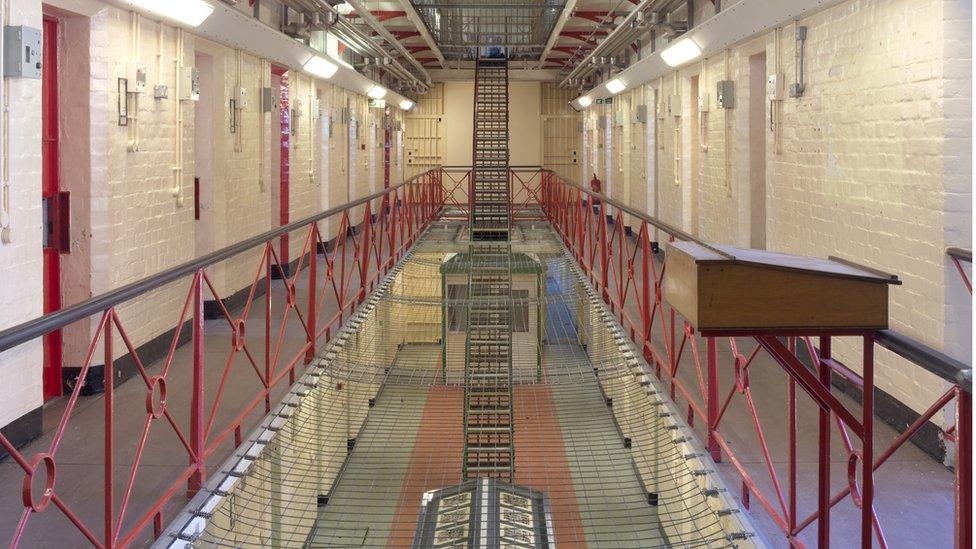
- Published21 July 2016
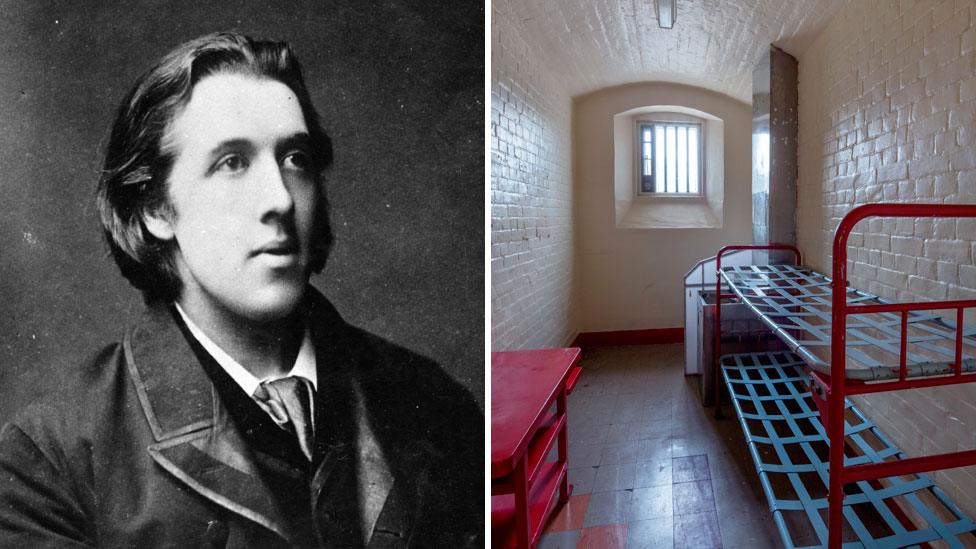
- Published9 July 2014
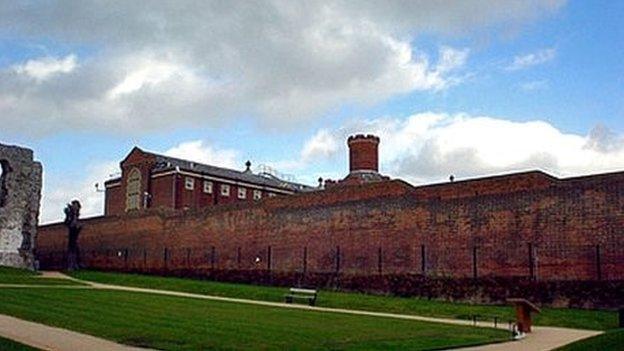
- Published22 November 2013
